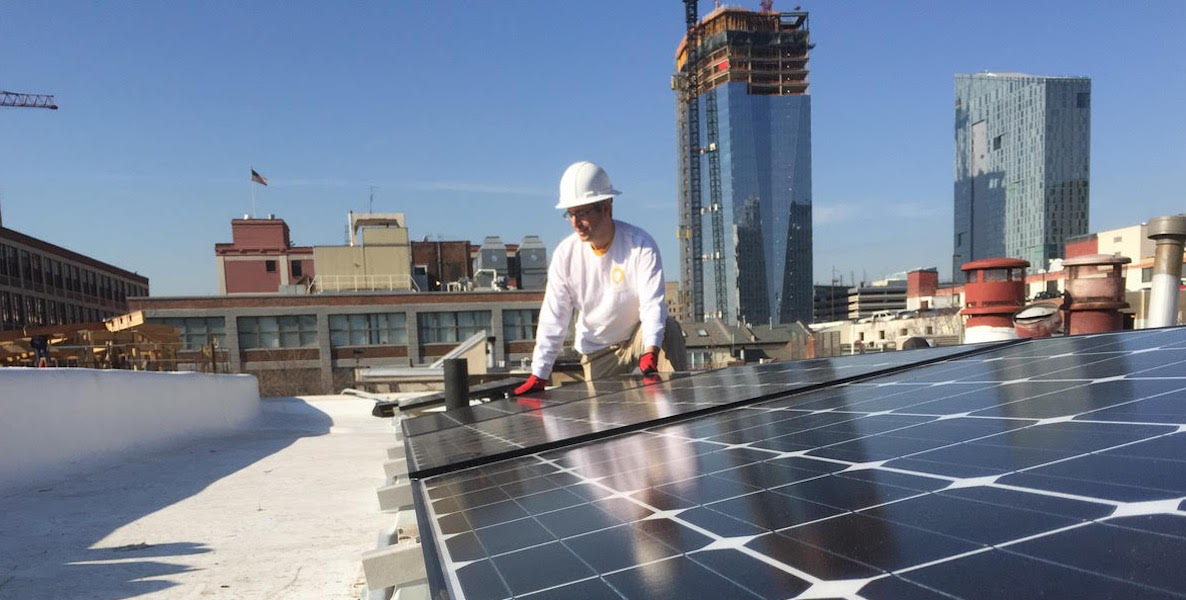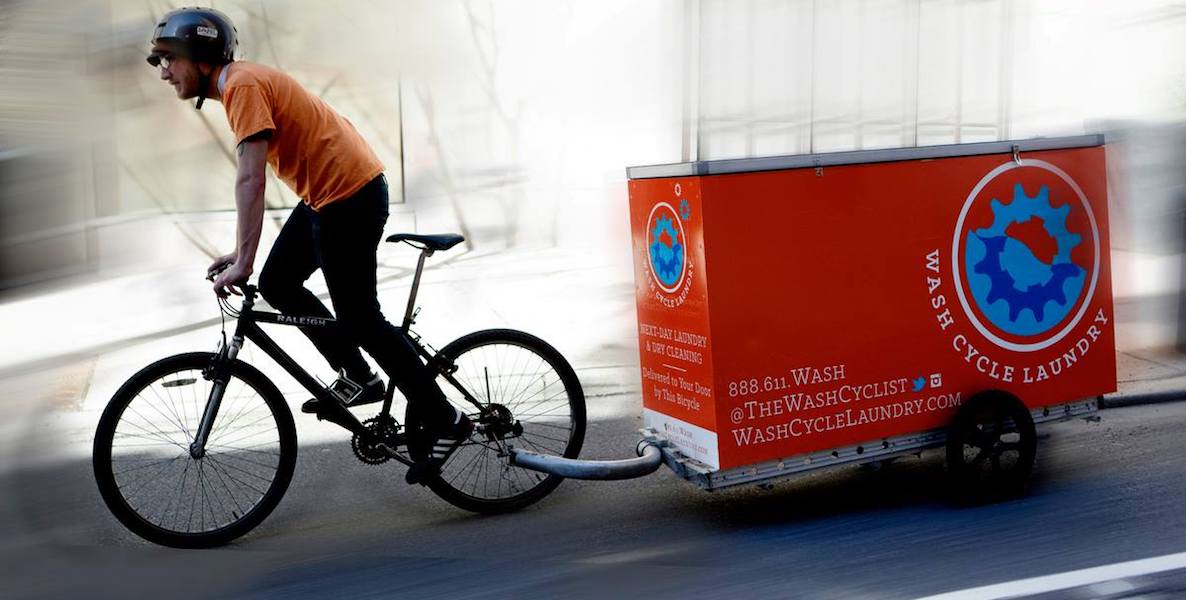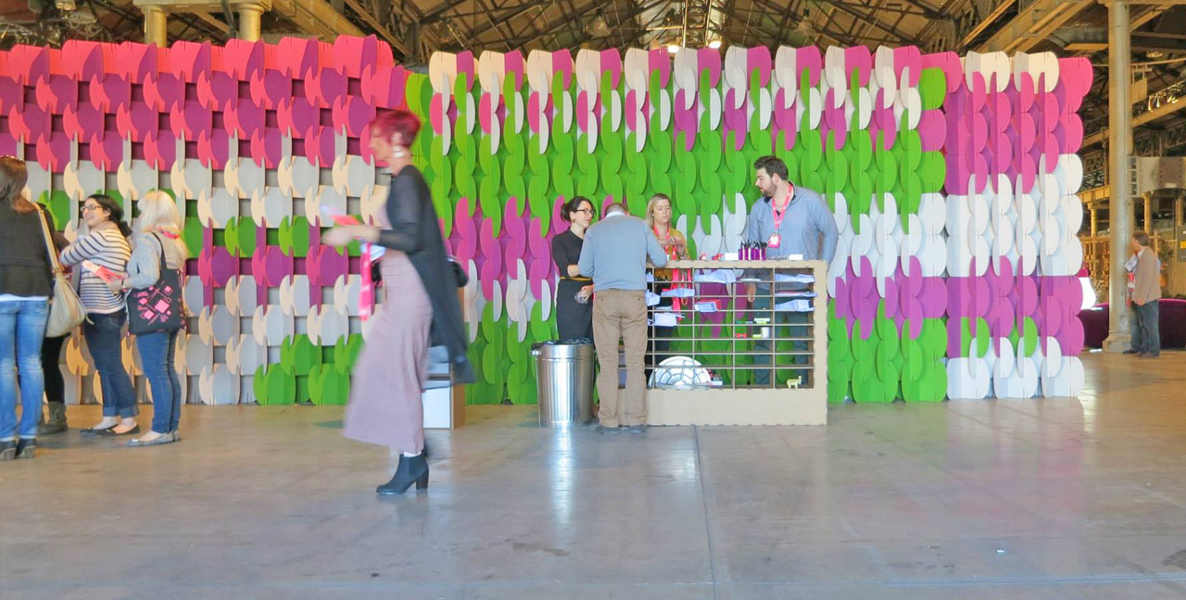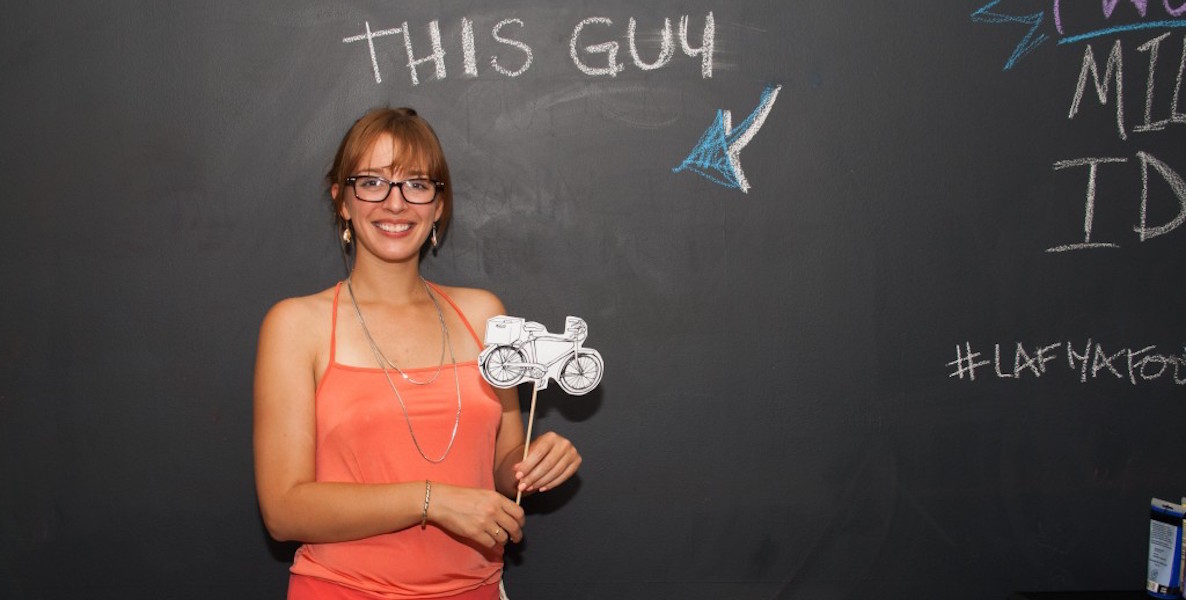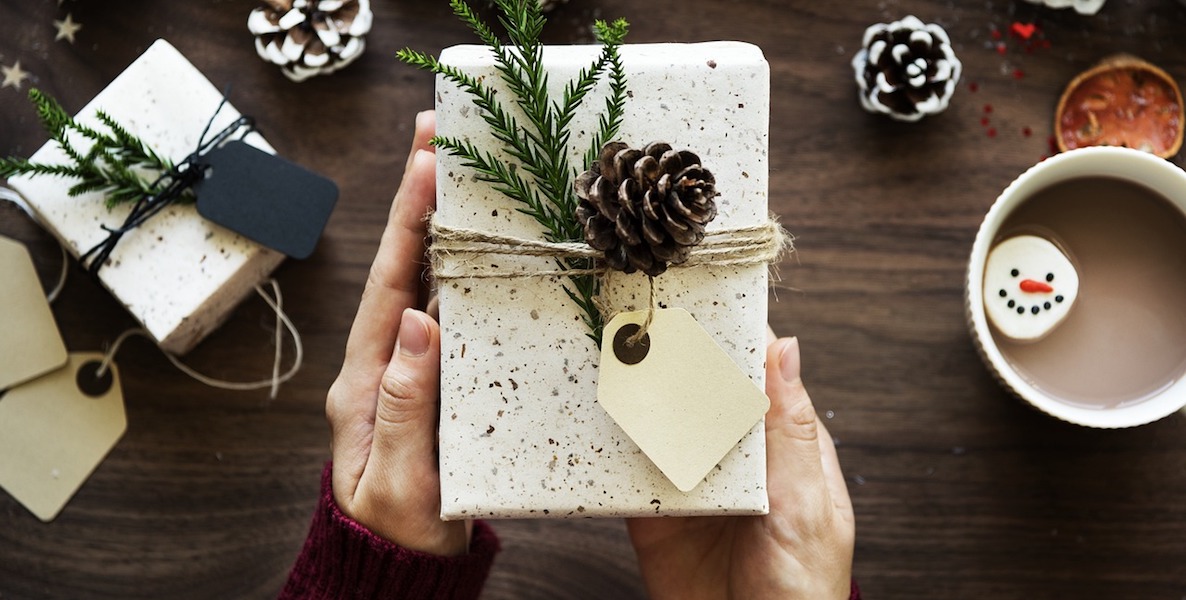As the founder of a B Corp Certified social impact company, MilkCrate, I have a strong commitment to living as sustainably as possible. In fact, that commitment was the impetus behind my company, which got its beginning while I was earning my degree in Sustainable Design.
Today MilkCrate is a digital platform that uses behavioral economics and gamification to build custom apps for clients like Fortune 100 companies who want to encourage their employees to be more sustainable. We also use our platform to build custom apps for outcomes-oriented nonprofits and schools to motivate and track behavior change in health, education and other impact goals—like a customized fitbit app for doing good.
Back when I was applying for graduate school and living in West Philly, I wanted to be an environmentally-conscious shopper and eater, someone who made sustainable choices in every aspect of my life for the greater good. But how could I do that? Where should I shop? What does that even mean? I hoped my company could provide a guide for others, and myself, to live our values.
I inherited this value system from my parents, when I was growing up in Elkins Park. My mom, in particular, taught me how to thrift shop, how to reuse, even how to turn ‘trash’ into treasure. Years ago, Nancy, my mom, worked as a chef for Neil Stein, with a menu that offered the first, local farm-to-table chicken, greens, and herbs in Philly. At home we composted, had a small herb and veggie garden, had secondhand furniture. I romped in thrift clothes she bought me; my dad wore them to Temple grad school and to work. Eventually she wrote and published an undercover researched, wise-cracking, regional, how-to guide on local thrift and consignment shops, rated with lots of shopping tips and maps. It became a big hit, and we all helped conduct thrift shopping maniac, 50-seat bus tours to Philly and Jersey environs and NYC.
Green is a lifestyle choice. We are all on the continuum. The purchases we make, and the marketplace in which we spend our money, reflect our habits and our commitment.
Now, Nancy is a suburban, high-efficiency car-driving, retired chef and author, semi-retired mother and long distance grandmother. But she is still the queen of green gifting. At thrift shops, she has found and given brand new Irish fisherman sweaters (price tags attached) for male and female relatives. A cashmere, floor length, baby blue wrap bathrobe for $25. An antique silk kimono. A $15 gentleman’s silk dressing gown, $15. A $25 set of Pfaltzgraf dishes (guests are always breaking them) for her friend with the mountain cabin. Vintage, collectible children’s books, or big splashy coffee table books for $5.
As she puts it, green is a lifestyle choice. We are all on the continuum. Green gifting is a year-round state of mind. The purchases we make, and the marketplace in which we spend our money, reflect our habits and our commitment. If you were to create new goals for your commitment, new patterns of being and doing, what would that take? What would that look like?
Facing down a holiday gift-giving checklist for five nieces and nephews, your coworkers, or wondering what would please a new boyfriend, a wife of 10 years, a newborn, your neighbor down the street? Instead of emptying your bank account and further enriching big box stores and online megaliths, how about considering one, some or all sustainable options this year?
Here are a few suggestions. Pick and then do, one or several possibilities from the list. Add more and more each year, and you will slowly, surely increase your circle of impact and change, not just for the holidays, but all year long.

Shopping Green & Eating Local
- Black Friday? Gather a group of friends and check out The Citizen’s checklist of sustainable neighborhood shops.
- Join your local food co-op. Along with unusual food gifts, most sell personal care products, books, household items, flowers and plants, toys, pet supplies, cards. Any of these would make good gifts for people on your list—and support your local economy.
- Buy a friend or your family membership in a weekly or monthly CSA (Community Supported Agriculture) food share.
- Having a party? Book an organic, sustainable caterer like female-owned Birchtree Catering, or Seedling & Sage. Doing it yourself? Buy only recyclable paper products.
- Coffee lover on your list? Buy brown paper coffee filters and a bag of sustainably farmed Fair Trade beans for one night of Chanukah gifting. We are lucky to have several local roasters from whom to choose, including ReAnimator Coffee, Greenstreet Coffee Co., and Philly Fair Trade Roasters.
- Give a home soda maker, from SodaStream, whose U.S. headquarters is in Cherry Hill. No bottles. No chemicals. Add your own flavors.
- Buy a sustainably raised turkey, goose, or duck for your holiday meal. Try the Fair Food Farmstand or Godshall’s in Reading Terminal Market, order a Green Meadow Farm bird from Green Aisle Grocery, or head to Greensgrow Farms to pick up a bird from Loag’s Corner Turkey Farm, and some locally-grown produce.

Making Good Goodies
- Do you bake? Make cranberry muffins. Mini fruit or cheese cakes. Cookies.
- Give your time. Cut recycled paper down to note size. Write down a gift of your time on each note, given to be ‘cashed in’ later: Empty dishwasher? Put kids to bed? Wash the car? Walk the dog? Dinner out? You cook? Hugs? Foot rub?
- Create personalized gift wrap: rethink unused fabric (the Japanese do it); save ribbon, shopping bags, baskets, bottles and snap-lid clear plastic food containers to reuse.
- Make your own front door wreath and garlands. Gather winter greens from the local woods or your own yard. Craft shops sell frames. So do thrift shops.
- Craft. Candle making is easy. Pottery? Sewing? Felting? Weaving? Knitting? These are all things you can learn over the next year. Or, better yet: Give loved ones gift certificates for classes, so they can make their own.
- Make gourmet vinegar and olive oil. Really, this couldn’t be easier. Collect used bottles. Buy stoppers. Cut herbs from your garden or buy at the farmer’s market. Stuff in the bottles. Top off with red or white wine vinegar or cold pressed organic olive oil.
- Make herb butter logs. Processor one pound of butter with herbs and garlic or shallots. Roll. Wrap. Freeze. Great melted on crostini, seafood, chicken, steak, eggs, pasta.

Doing Good Deeds
- Make a donation in someone’s name to an environmentally committed or activist nonprofit. Find several local options here.
- Buy a live Christmas tree to be planted later on your property or a friend’s.
- Contact the Audubon Society. They will help you or a friend establish a backyard bird sanctuary.
- Buy someone you love a gift certificate to a local green spa—like Queen Village’s Juju or Midtown Village’s Eviama— yoga class, or an acupuncture session, Feng Shui class, Tai Chi class, calligraphy, drawing or landscaping class, lecture series.
- Donate family time to feed the homeless, or volunteer in your community food pantry.
- Get a free street tree for your neighborhood. Or, plant a tree (or a grove) in someone’s name.
- Invite that senior neighbor down the street over for Christmas or Chanukah dinner.
Merry Christmas! Happy Chanukah! Happy Holidays! And peace to you and yours.
Header Photo: Pixabay


